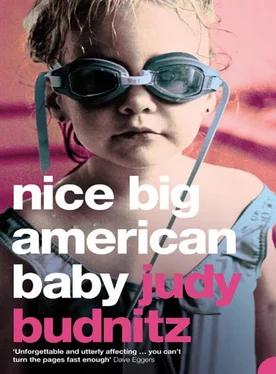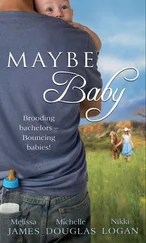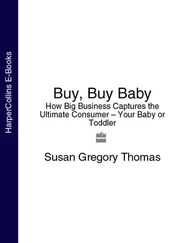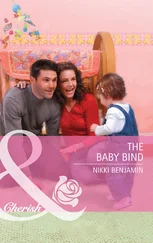And when I finally forced myself to turn on the light, turn around, and look—I was so convinced there would be something floating there that I was horribly shocked, my stomach lurched, to see only the empty toilet.
I went back to work on Tuesday.
Did I miss anything? I asked one of the men.
You were gone? he said.
I didn’t know his name; all the men who worked there looked alike. They were all too loud and had too much spit in their mouths.
I had a cubicle all my own, but I dreamed of an office with a door I could close.
A few days later, my father called. Your mother heard the results from the clinic, he said. The mammogram was fine.
That’s great, I said.
She doesn’t seem happy about it, he said. She’s acting very strange.
Oh, I said.
What’s going on, Lisa? he said. There’s something fishy going on here.
Nothing, I said. Ask your wife, I said. Can I talk to her?
She just dashed out for an appointment, told me to call you. She said you’d be relieved.
Yes.
I’m going to call your sister now, she was waiting to hear. Or do you want to call her?
I’ll do it, I said.
It seemed strange to me then that I would need to call Mitch. It felt like she was right here with me, living in my skin. Why should I have to pick up a phone?
We both went home for Christmas.
Later Mitch visited them.
Then I visited.
Then it was Mitch’s turn again.
When I called home during Mitch’s visit, my father said, Your mother was due for another mammogram, so I sent Lisa with her to make sure she goes.
You mean you sent Mitch, I said. I’m Lisa.
Yes, right. You know who I mean.
A few days later my father called. His voice sounded strained. Your mother talked to the mammography clinic today, he said, but she won’t tell me anything. She’s been in her room, crying. She’s been talking on the phone to your sister for an hour. I guess the doctors found something, but I’ll let you know when we know for sure.
OK.
I hung up and called Mitch.
Hello, she said. She sounded like she was choking on one of her pens.
Mitch, I said. It’s yours, isn’t it?
She sighed and said, It’s ridiculous, but I thought I was doing her a favor, I thought I was sparing her some worry.
You went in for her, didn’t you?
You know, Mitch said, she’s more worried about this than if she was the one. She feels like it’s her lump, like it was meant for her, like she gave it to me somehow.
That’s ridiculous, I said. It was like I was talking to myself.
Although, you know, if it were possible, I would, Mitch said. I mean, if there was somehow a way to magically take a lump out of her breast and put it in mine, I’d do it in a second.
I wish I could do that for you, I said.
Yeah, we could all share it.
One dessert and three forks, I said.
And later, as I sat alone on the floor in the apartment, I thought about being my mother’s daughter and my sister’s sister, and I felt my edges start to bleed a little. I remembered standing in a white room with my breast clamped in the jaws of a humming machine. I imagined the mammogram pictures like lunar landscapes, and I could not remember who had the lump anymore, it seemed we all did, and then the phone rang again and I picked it up and heard my father call out as he sometimes did: Leah-Lise-Mitch.
Our friend Joel got one of those mail-order brides. It was all perfectly legitimate: he made some calls, looked through the catalogs, comparison-shopped. He filled out the forms without lying about his income or his height. Where it asked MARITAL STATUS? he wrote Divorced! and When she left me I threw my ring into the sea. “That’s so romantic,” we all said when he did it. “No it wasn’t, it was stupid,” he said. “I could have sold that ring for a lot of money.” We insisted, “No, it’s very romantic.” “Do you think?” “Any woman would want you now,” we said, as we put on bathing suits and diving masks and headed down to the beach.
I’ll call her Nadia. That was not her name, but I’ll call her that to protect her identity. She came from a place where that was necessary. Nadia brings up images of Russian gymnasts. Or is it Romanian? Bulgarian? She had the sad ancient eyes, the strained-back hair, the small knotty muscles. The real Nadia, the famous Nadia, I forget what she did exactly; I have vague memories of her winning a gold medal with a grievous wound, a broken bone, a burst appendix. I think she defected. I picture her running across a no-man’s-land between her country and ours, dressed in her leotard and bare feet, sprinting across a barren minefield where tangles of barbed wire roll about like tumbleweeds and bullets rain down and bounce on the ground like hail.
But our Nadia, Joel’s Nadia, came wrapped as if to prevent breakage in a puffy quilted coat that covered her head to foot. She kept the hood up, the strings drawn tight so all we could see was her snout poking out. She must have been cold when she first came; she stood in his apartment, and wouldn’t take it off, and then went and leaned against the radiator. We were all there to welcome her; we had come bringing beer and wine and flavored vodkas: orange, pepper, vanilla.
It was an old-fashioned radiator and her coat must have been made of some cheap synthetic because it melted to the metal. When she tried to step away and found she couldn’t, she moved in a jerky panicked way that was strangely endearing. Joel tried to help her out of the coat but she wouldn’t let him, she jerked and flailed until the coat ripped open and the filling spilled out. It wasn’t down, it was like some kind of packing material, polystyrene peanuts or shredded paper.
It reminded me—a few months earlier I’d ordered some dishes, and when they came in the mail I found they’d been packed in popcorn, real popcorn. Some companies do this now, I’ve been told, because it’s biodegradable, more environment-friendly. I took out the dishes and wondered if I should eat all that popcorn, but it seemed unsanitary. It might have touched something, I don’t know, at the plant: dust, mouse droppings, the dirty hands of some factory worker. So I threw it away, this big box of popcorn. I still think about it. Probably that box could have fed Nadia’s whole family for a week.
Joel and Nadia had written to each other, their letters filtered and garbled by interpreters. They described themselves: hair, eyes, height, weight, preferences in food, drink, animals, colors, recreations. She could speak English but not write it; they had a few phone conversations. What could they possibly have talked about? What did she say? It was enough to make him pay the money, buy the tickets, sign the papers to bring her over the ocean.
These days, ever since her arrival, Joel looked happy. He had a sheen. Someone had cleaned the waxy buildup from his ears. We asked if she was different from the women here, if she had a way of walking, an extra flap of skin, a special smell. Did she smell of cigarettes, patchouli, foreign sewers, unbathedness?
“I think she has some extra bones in her spine,” he said. “She seems to have a lot of them. Like a string of beads. A rosary.”
We’d seen more of her by then, up close, coatless. Her hair was bright red, black at the roots, which gave her head the look of a tarnished penny.
“Tell us something about her,” we said.
He closed his eyes. “When I take off her shirt,” he said, “her breasts jump right into my hands, asking to be touched.”
He opened his eyes to see how we took that.
“Her nipples crinkle up,” he said, “like dried fruit. Apricots.”
Читать дальше












